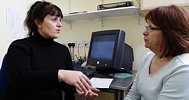Drug addiction has been a problem for centuries. Opium, heroin and cocaine were predominantly used for medicinal purposes until the high addiction rates and resulting problems led to these substances becoming banned. These days, modern drug treatment facilities are far more successful than the previous 'asylum' treatments because so much more is known about addiction.
Through the obsessive and compulsive nature of the condition, addiction is widely classed as a disease which is progressive, incurable and will lead to death or institutionalisation if not arrested. The afflicted individual finds themselves powerless to stop seeking and consuming drugs habitually and their lives begin to suffer dramatically, affecting all those who are close to them.
Symptoms of the disease of addiction
Drug addicts have the best intentions and will try to stop when they can see that their substance abuse is out of control. However, they cannot stop, or try to 'moderate' their use. When attempting to stop or 'just have one', addicts find that that they cannot control their drug use and consume just as much as they did previously, no matter what the consequences. This is because they have a disease - addicts are not 'weak willed' or bad people, they have an illness.
Many people frown on drug addicts and exclaim: "he just has no willpower, which is why he cannot stop using drugs!" However, an addict’s strong self will is usually the cause of many of their problems. Underlying issues which have never been dealt with accompanied by complex psychological problems and the obsessive and compulsive nature of the disease are the areas which need to be focused on. Drug use is only a symptom of the disease of addiction.
Signs of drug use
Whilst drug use is only a symptom of a much deeper problem, there are signs which indicate that a person is using drugs habitually.
- Declining job performance and loss of interest in their career
- Unreliable behaviour such as tardiness or being out of contact (for example cell phone switched off)
- Weight loss or gain
- Large or pin-prick sized pupils
- Pale, gaunt appearance
- Needle marks on arms, blisters on lips, blisters on thumbs and fingers
- Lack of finances, never having money, borrowing money
- Money or possessions going missing in their presence
- Disappearance of their personal possessions
- Glass pipes, burnt/broken light bulbs, rolling papers, tinfoil, hypodermic needles, melted lighters, plastic 'bankies' in their possession
- Isolation and avoidance of family and friends
- Degeneration of relationships
- Secretive behaviour
- Violent outbursts and rage
- Dramatic changes in moods and personality
- Lack of interest in things which used to please them
When a treatment centre is needed
The list above illustrates the fundamental consequences of an addict's drug use. Their lives become unmanageable and deteriorate into a miserable, lonely and fear-based existence. Family and friends tire of the lies, deceit and pain of seeing a loved one dying a slow death. Jobs are lost, health and personal hygiene are neglected and self destructive behaviour is rife. Despite all of these negative aspects of their lives, addicts cannot stop using drugs and drifting further into misery. It is at this point that admission into a drug addiction treatment centre may be needed to help arrest their condition and save their lives.
Types of treatment
There are many different types of addiction centres in South Africa. Some are religious, some only counsel patients and some use the 12 Steps of recovery accompanied by counselling. The latter has been found to have a very high success rate as it provides therapy as well as a strong support system with tools for dealing with everyday life once the addict has finished treatment. This is vital for continued abstinence.
12 Step treatment centres generally have different stages catering for those at different levels of recovery. Primary Care treatment is the most intense, followed by Secondary and Tertiary. Extended Primary offers a much longer in-patient stay than Primary Care centres and at a more affordable price. This gives addicts the chance of undergoing intensive therapy for a longer period of time, therefore increasing their chances of remaining abstinent.
The therapy programm
Addiction treatment requires the client to make fundamental changes to their lifestyle and psyche. A typical treatment programme will involve a client meeting with a designated counsellor for drug addiction counselling sessions on a regular basis, group therapy sessions and written work and assignments. 12 Step meetings are an important part of a 12 Step Programme and clients will be transported to meetings which they will attend regularly. It has also become evident of late that addicts in drug addiction treatment benefit immensely from living a healthy lifestyle featuring exercise and healthy eating patterns.
Drug addiction is a terrible disease which ruins lives, marriages and families. If arrested, the condition can be managed and many addicts go on to live a happy and content life, free from the obsession and compulsion to use narcotics. Drug addiction counselling accompanied by the application of a 12 Step Programme and a healthy lifestyle are incredibly beneficial for helping addicts to maintain continued sobriety.



